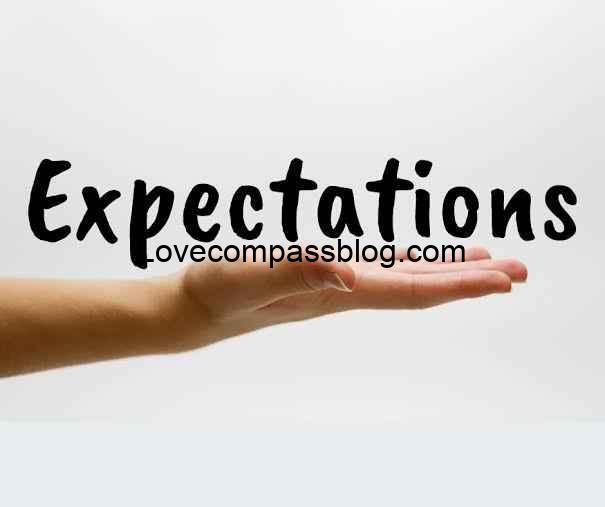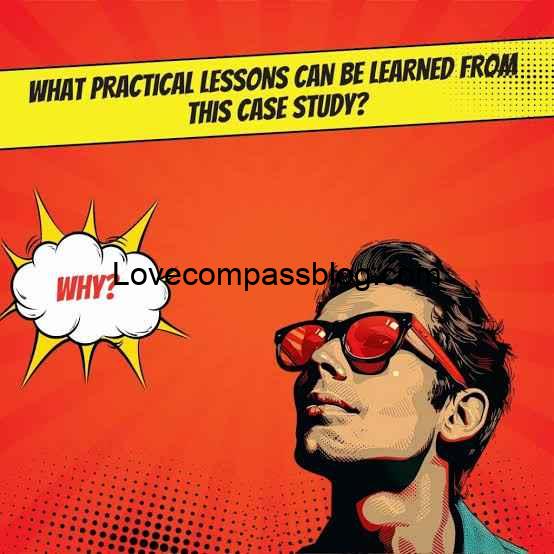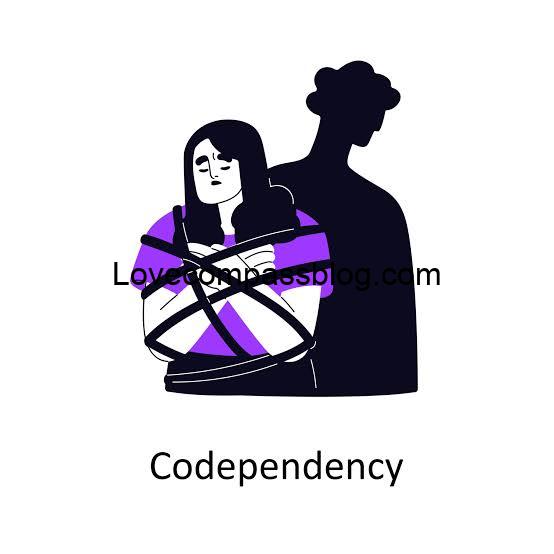Unmet Expectations in Relationships: An In-Depth Guide

Every relationship is built on a set of expectations—both spoken and unspoken. These expectations guide how we interact with our partners, shaping our sense of satisfaction and fulfillment. When these expectations are unmet, it can lead to disappointment, conflict, and even the erosion of the relationship’s foundation. This article explores the various aspects of unmet expectations in relationships, including how they form, the impact they have, and practical strategies for managing them effectively.
Relationship Expectations

Types of Expectations in Relationships
- Emotional Expectations: These include the need for love, support, empathy, and understanding from a partner. Emotional expectations often revolve around how partners express affection, provide comfort during difficult times, and show appreciation for each other.
- Physical and Financial Expectations: Physical expectations involve intimacy, shared living spaces, and personal boundaries. Financial expectations pertain to how partners manage money, contribute to household expenses, and plan for the future.
- Social and Familial Expectations: These expectations involve how partners interact with each other’s families and social circles. They also include expectations related to social activities, such as attending events together or supporting each other’s social needs.
Healthy vs. Unrealistic Relationship Expectations
- Healthy Expectations: These are realistic and achievable within the context of the relationship. For example, expecting mutual respect, open communication, and shared responsibilities are healthy expectations that contribute to a strong partnership.
- Unrealistic Expectations: Unrealistic expectations are often based on idealized notions of what a relationship should be. These might include expecting a partner to fulfill all emotional needs, never argue, or change their personality traits. Unrealistic expectations can lead to chronic dissatisfaction and disappointment.
Common Sources of Unmet Expectations
- Communication Breakdown: One of the most common sources of unmet expectations is a failure to communicate needs and desires clearly. When partners assume that their expectations are understood without discussing them, it can lead to misunderstandings and frustration.
- Cultural and Familial Influences: Expectations can be heavily influenced by cultural norms and family upbringing. Partners may have different views on gender roles, family responsibilities, and social interactions based on their backgrounds, leading to conflicts when these expectations clash.
- Personal Insecurities and Past Experiences: Past experiences, including previous relationships and childhood upbringing, can shape expectations in significant ways. For instance, someone who grew up in a household with little emotional expression may struggle with expectations around emotional intimacy.
The Impact of Unmet Expectations

Emotional and Psychological Effects
- Feelings of Disappointment and Hurt: When expectations are unmet, partners may feel let down, leading to emotional pain and disillusionment. Over time, these feelings can accumulate, creating emotional distance between partners.
- Trust Issues: Unmet expectations can erode trust, especially if one partner feels repeatedly let down. Trust is a cornerstone of any relationship, and its erosion can lead to deeper problems, such as insecurity and doubt about the future of the relationship.
- Emotional Withdrawal: When expectations are consistently unmet, one or both partners may begin to withdraw emotionally, leading to a lack of intimacy and connection. This can create a vicious cycle where unmet expectations lead to further emotional disengagement.
Conflict and Resentment in Relationships
- Escalation of Conflicts: Unmet expectations often lead to arguments, as partners express their frustration and disappointment. If these conflicts are not resolved, they can escalate, causing further damage to the relationship.
- Building Resentment: When expectations are not addressed, resentment can build over time. This resentment can manifest as passive-aggressive behavior, bitterness, and a general sense of dissatisfaction with the relationship.
- Impact on Communication: Resentment and conflict can severely impact communication, making it difficult for partners to discuss their needs and desires openly. This can create a communication gap that further exacerbates the issue of unmet expectations.
Unmet Expectations in Marriage
- Challenges in Long-Term Partnerships: In marriage, where partners share more responsibilities and long-term goals, unmet expectations can have a particularly significant impact. Issues such as differing views on household chores, parenting, and financial management can strain the relationship.
- Impact on Marital Satisfaction: Unmet expectations can lead to dissatisfaction with the marriage, contributing to feelings of regret or doubt about the partnership. Over time, this dissatisfaction can lead to a breakdown in the marriage if not addressed.
- The Role of Intimacy and Emotional Support: In marriage, expectations around intimacy and emotional support are often central to the relationship. When these expectations are unmet, it can lead to a decline in the overall quality of the marriage, affecting both partners’ well-being.
Managing and Handling Unmet Expectations

Communication Strategies
- Open and Honest Dialogue: The first step in managing unmet expectations is to have an open and honest conversation about them. Partners should feel safe expressing their needs and concerns without fear of judgment or criticism.
- Active Listening: Listening is just as important as speaking. Partners should practice active listening, where they fully engage with what the other person is saying and seek to understand their perspective. This can help prevent misunderstandings and foster a deeper connection.
- Regular Check-Ins: Relationships evolve, and so do expectations. Regularly checking in with each other to discuss how things are going can help prevent unmet expectations from festering. These check-ins provide an opportunity to reassess and adjust expectations as needed.
Conflict Resolution Techniques
- Addressing Issues Early: It’s crucial to address unmet expectations as soon as they arise. Avoiding or ignoring these issues can lead to bigger problems down the line. Partners should tackle the root cause of the conflict rather than focusing on the symptoms.
- Finding Common Ground: Successful conflict resolution often involves finding a compromise that satisfies both partners. This might mean adjusting expectations or finding new ways to meet each other’s needs.
- Seeking Outside Help: Sometimes, conflicts around unmet expectations can be too challenging to resolve on your own. In such cases, seeking the help of a relationship counselor can provide valuable insights and tools for managing these issues.
Setting and Adjusting Expectations
- Realistic Goal-Setting: Partners should work together to set realistic expectations that take into account their individual needs and circumstances. This process should involve honest discussions about what each partner can realistically offer and what they need in return.
- Flexibility and Adaptability: Life circumstances change, and so do relationships. Partners should be willing to adapt their expectations as their relationship evolves, whether due to changes in career, health, or family dynamics.
- Establishing Boundaries: Clear boundaries can help manage expectations by defining what is acceptable and what is not. These boundaries should be mutually agreed upon and respected by both partners.
Overcoming Disappointment and Resentment

Coping with Unmet Expectations
- Emotional Awareness: Recognizing and acknowledging feelings of disappointment is the first step in coping with unmet expectations. Partners should allow themselves to feel these emotions without letting them overwhelm the relationship.
- Mindfulness Practices: Techniques such as mindfulness can help individuals stay present and manage their emotions. Mindfulness encourages focusing on the current moment rather than dwelling on past disappointments or future anxieties.
- External Support: Sometimes, it can be helpful to talk to a trusted friend, therapist, or counselor about unmet expectations. External support can provide a fresh perspective and help individuals process their emotions more effectively.
Rebuilding Trust and Connection
- Consistent Actions: Rebuilding trust after unmet expectations requires consistent actions that demonstrate reliability and care. Partners should follow through on promises and commitments to restore confidence in the relationship.
- Reconnecting Emotionally: Re-establishing an emotional connection is key to overcoming disappointment. This might involve spending quality time together, engaging in activities that both partners enjoy, or simply making time for meaningful conversations.
- Forgiveness and Letting Go: Letting go of past disappointments is essential for moving forward. Forgiveness doesn’t mean forgetting, but it does mean choosing to release resentment and focus on rebuilding the relationship.
Moving Forward: Repairing the Relationship
- Honest Conversations: Repairing a relationship after unmet expectations involves honest and constructive conversations. Partners should discuss what went wrong, what needs to change, and how they can support each other moving forward.
- Commitment to Change: Both partners need to be committed to making the necessary changes to address unmet expectations. This might involve adjusting behaviors, improving communication, or seeking outside help.
- Creating a New Path Forward: The ultimate goal is to create a new path forward that strengthens the relationship. This might involve setting new goals, redefining roles, or simply committing to a fresh start.
Addressing Specific Relationship Dynamics

Unmet Expectations in Different Relationship Stages
- Early Stages: In the early stages of a relationship, expectations might revolve around how often to communicate, when to introduce each other to friends and family, and the pace at which the relationship is progressing.
- Long-Term Partnerships: As relationships progress, expectations often shift toward shared responsibilities, long-term goals, and deeper emotional support. Partners need to be aware of these shifts and adapt accordingly.
- Marriage: In marriage, expectations can become more complex, involving decisions about finances, child-rearing, and maintaining intimacy over the long term. Open communication and regular reassessment of these expectations are crucial to maintaining a healthy marriage.
Gender Dynamics and Expectations
- Male Expectations in Relationships: Men may have certain expectations around respect, appreciation, and shared activities. These might include the expectation for support in their career, hobbies, or the way they are treated in public and private settings.
- Female Expectations in Relationships: Women often expect emotional support, affection, and meaningful communication. They might also have expectations around shared responsibilities, especially in areas like household chores and parenting.
- Navigating Gender-Based Expectations: It’s essential for partners to recognize and address the different expectations that might arise based on gender. Understanding and respecting these differences can help prevent misunderstandings and promote harmony in the relationship.
Cultural and Societal Influences
- Cultural Norms and Expectations: Cultural backgrounds can heavily influence what each partner expects in a relationship. These norms may dictate roles within the partnership, communication styles, and how conflict is handled.
- Societal Expectations: Society often imposes certain expectations on relationships, such as the importance of marriage, the timing of having children, and the roles each partner should play. Couples need to navigate these societal pressures while staying true to their values and needs.
- Balancing Cultural and Personal Expectations: Partners should strive to balance the expectations imposed by their cultural background with their personal desires and the realities of their relationship. Open communication and compromise are key to achieving this balance.
The Role of Faith and Spirituality

Unmet Expectations in Relationships: Biblical Perspectives
- Biblical Teachings on Relationships: Many couples turn to their faith for guidance on handling unmet expectations. Biblical teachings often emphasize the importance of love, patience, forgiveness, and selflessness in relationships.
- Spiritual Growth Through Challenges: Unmet expectations can be seen as opportunities for spiritual growth. Challenges in a relationship can lead to a deeper understanding of one’s faith and reliance on spiritual principles for guidance.
- Practical Application of Faith in Relationships: Couples who share a spiritual or religious foundation might find strength in prayer, counseling with a spiritual leader, or engaging in faith-based activities together. These practices can help them navigate unmet expectations while staying aligned with their spiritual values.
The Impact of Unspoken Expectations
- Unspoken Expectations as Premeditated Resentments: When expectations remain unspoken, they can lead to misunderstandings and resentment. Partners may assume the other knows what they want or need, leading to disappointment when those needs go unmet.
- Encouraging Open Dialogue: To avoid the pitfalls of unspoken expectations, couples should encourage an environment where both feel comfortable expressing their desires and concerns. This openness reduces the likelihood of resentment and strengthens the relationship.
- Strategies for Articulating Unspoken Needs: Partners can use tools such as regular check-ins, journaling, or even counseling to better articulate their unspoken needs. By making the implicit explicit, they can prevent many of the conflicts that arise from unmet expectations.
Real-Life Examples and Practical Applications

Common Scenarios of Unmet Expectations
- Unmet Expectations in Daily Routines: One partner might expect that household chores are shared equally, while the other assumes traditional roles where one partner takes on more domestic responsibilities. Addressing these differing expectations requires clear communication and compromise.
- Expectations Around Special Occasions: Disappointments often arise around holidays, birthdays, or anniversaries when one partner’s expectations for celebration are not met. Discussing these expectations in advance can help avoid hurt feelings and ensure that both partners feel valued.
- Long-Term Unmet Expectations: Over time, unmet expectations about major life decisions, such as career moves, living arrangements, or family planning, can build up and create significant strain on the relationship. Regularly revisiting these topics and adjusting plans as needed can help manage long-term expectations.
Steps for Moving Forward After Unmet Expectations
- Reflecting on the Situation: After an unmet expectation has caused conflict, it’s important to take time to reflect on what happened and why. Both partners should consider how their expectations were formed and whether they were realistic.
- Rebuilding the Relationship: Repairing a relationship after unmet expectations involves mutual effort. Both partners need to be committed to understanding each other’s needs, communicating effectively, and making the necessary changes to prevent similar issues in the future.
- Looking Ahead with New Understanding: With the lessons learned from unmet expectations, couples can move forward with a renewed understanding of each other. This might involve setting new, shared goals, improving communication strategies, or simply committing to being more patient and understanding.
Conclusion
Unmet expectations are a natural part of any relationship, but they don’t have to be a source of persistent conflict. By understanding the origins of these expectations, communicating openly, and practicing empathy, couples can navigate these challenges and grow stronger together. A relationship built on mutual respect, adaptability, and understanding can withstand the disappointments that arise from unmet expectations, leading to a more fulfilling and resilient partnership.





